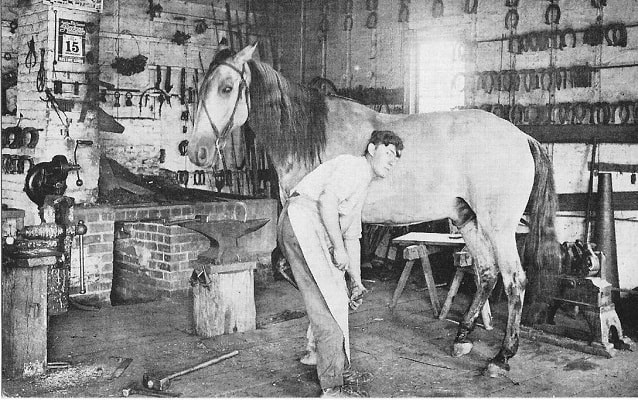Last updated: December 13, 2017
Place
Blacksmith Shop

Photo courtesy of Amana Heritage Society
The Amana villages were situated in a soil rich area of Iowa, and thus farmers required a full service blacksmith and repair shop. Each Amana village had one blacksmith shop, which was located alongside other, related trades shops. Wagon shops, harness shops, and blacksmith shops, for example, were usually built together near the agricultural buildings. Other, unrelated shops - such as bakeries, tailor shops, or other general service shops - were more centrally located.
A blacksmith's shop was complete with bellows, anvil, tongs, clippers, cutters, hammers, and a horseshoeing area. Wheel assembly jigs, tire benders, oiling troughs and measuring wheels would be found in the portion of the shop specializing in wagon repair. In the Amana Colonies, wagon shops were often separate from blacksmith shops. For agrarian societies wagons were a necessity. After World War II, however, welding and machine works began replacing wagon making and repairing in many Iowa blacksmith shops. Electric welders, gas forges, metal cutting bandsaws, grinders and lathes entered many blacksmith shops in the 20th century.
The Homestead Blacksmith Shop stands as an expression of an era when agricultural small town industry and commerce centered on the blacksmith's services.
